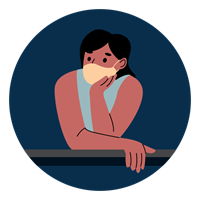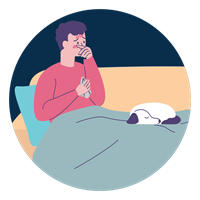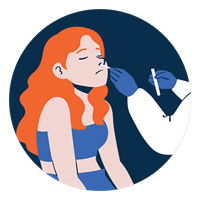Sick or exposed
Resources on this page can support you if you have COVID‑19 or have been exposed to someone with COVID‑19.

What to do when you are sick

How to care for yourself and others
Most people with COVID-19 have milder illness and are able to recover at home without medical care.

 Translate
Translate
